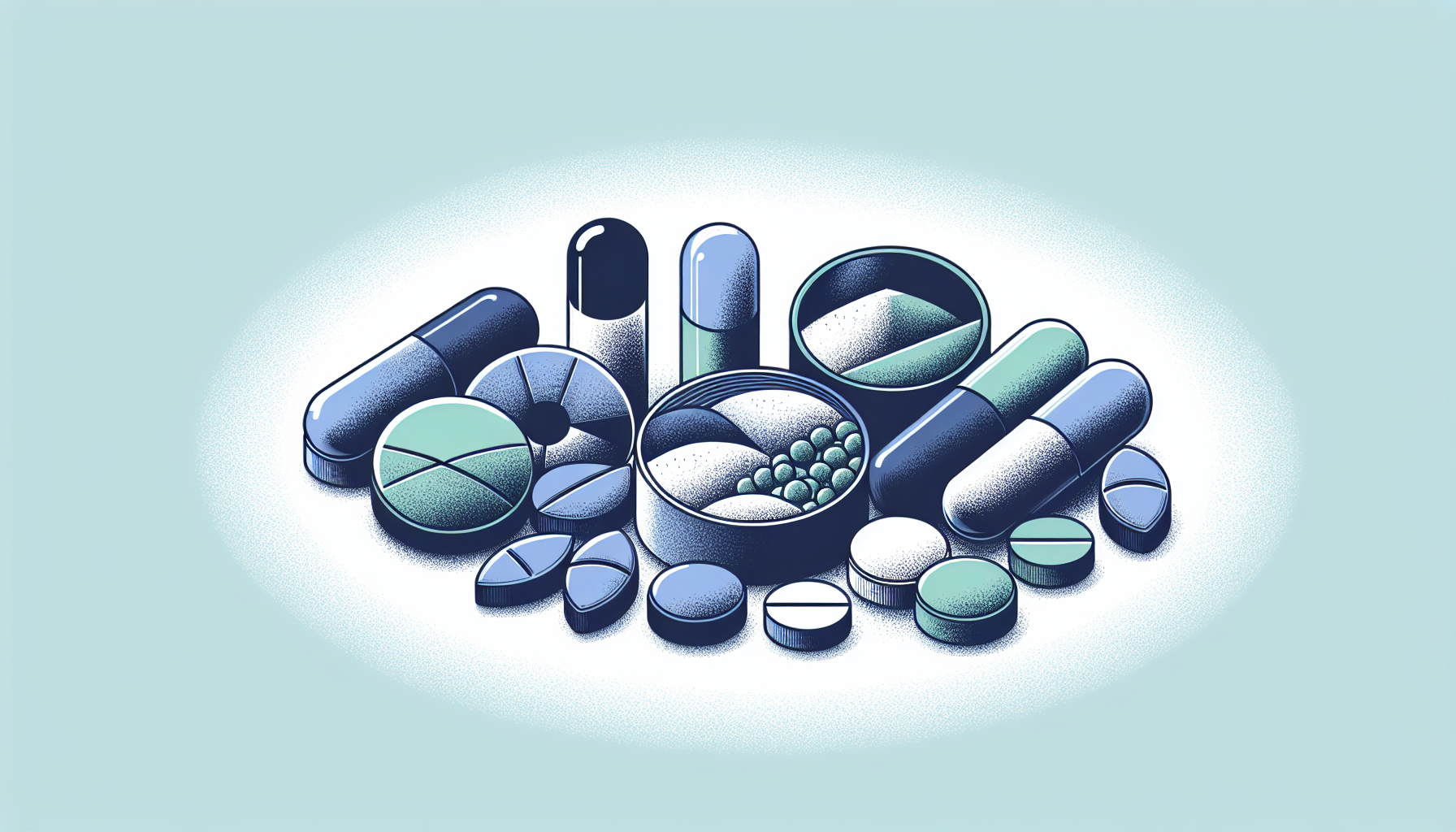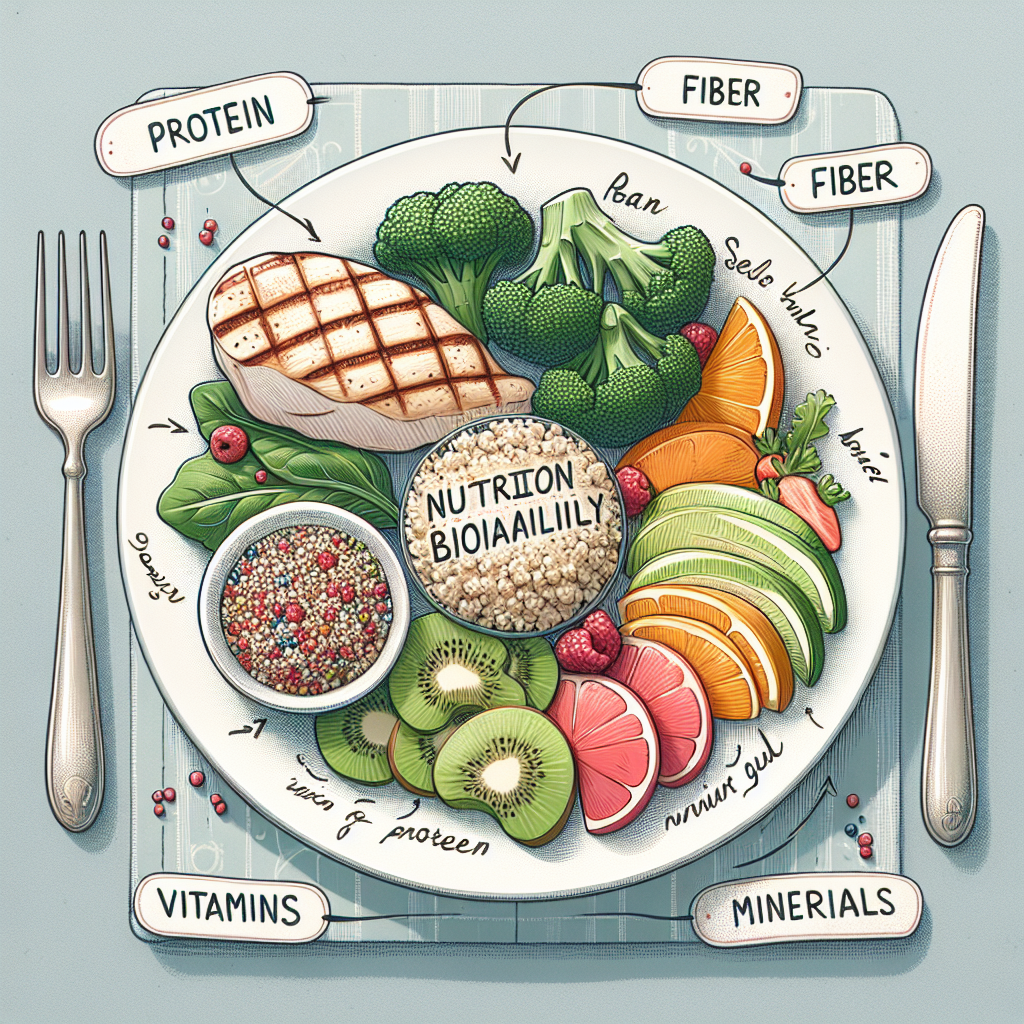In an age where health consciousness is on the rise, the global market for dietary supplements is expanding rapidly. Consumers are increasingly turning to these supplements to fill nutritional gaps, enhance health, and prevent diseases. However, not all supplements are created equal, and their effectiveness can be significantly influenced by a key factor: bioavailability. This article delves into the intricacies of bioavailability and its crucial role in the effectiveness of supplements.
What is Bioavailability?
Bioavailability refers to the proportion of a nutrient or supplement that enters the circulation when introduced into the body and so is able to have an active effect. It determines how much of what you ingest is actually utilized by your body. Several factors affect the bioavailability of a supplement, including its chemical form, the presence of other substances, and individual human factors such as age, health status, and genetic makeup.
Understanding bioavailability is crucial because it directly impacts the therapeutic outcomes of supplements. A supplement with poor bioavailability will be less effective, regardless of its dosage, because a minimal amount of the active ingredient is absorbed and used by the body.
Factors Affecting Bioavailability
Chemical Form
The chemical form of a supplement influences its solubility and, consequently, its absorption. For instance, some minerals are available in several forms, with varying degrees of bioavailability. Magnesium, an essential mineral for bone health, is a prime example. Magnesium citrate is known to be more bioavailable than magnesium oxide.
Delivery System
The delivery system of a supplement can enhance or impede bioavailability. Traditional tablets may not dissolve effectively, leading to limited absorption. In contrast, liquid forms, effervescent tablets, or liposomal delivery systems can greatly increase bioavailability.
Interactions With Other Substances
Interactions with food, other supplements, and medications can affect a nutrient’s bioavailability. For example, calcium can interfere with the absorption of iron, while vitamin C can enhance it. Understanding these interactions is pivotal for maximizing the benefits of supplements and is a cornerstone of effective medication and supplement management.
Physiological Factors
Individual physiological factors such as gut health, metabolic rate, and enzyme activity can significantly impact the bioavailability of supplements. Poor digestive health, for instance, may reduce the ability to absorb nutrients effectively.
Enhancing Bioavailability in Supplements
To overcome the challenges of low bioavailability, supplement manufacturers often resort to several strategies:
Use of Bioavailable Forms
Selecting the most bioavailable forms of nutrients is a direct approach to enhancing effectiveness. Chelated minerals and methylated vitamins are examples of bioavailable forms that are more easily absorbed by the body.
Advanced Delivery Systems
Innovative delivery systems such as microencapsulation, liposomal technologies, and nano-sized particles are being developed to protect nutrients from degradation and improve their absorption.
Addition of Absorption Enhancers
Certain compounds, known as absorption enhancers or bioenhancers, can be added to supplements to increase bioavailability. Piperine, found in black pepper, is a well-known bioenhancer that can enhance the absorption of various nutrients.
Timed-Release Formulas
Timed-release formulas are designed to release the active ingredients gradually over time, rather than all at once, which can lead to better absorption and a prolonged effect.
Bioavailability and Supplement Safety
While enhancing bioavailability is generally beneficial, it is also necessary to consider safety. High bioavailability can potentially lead to toxicity if the supplement is taken in excess. This underscores the importance of adhering to recommended dosages and consulting healthcare professionals, especially when dealing with nootropic supplements that can affect brain health.
The Role of Diet in Bioavailability
Diet plays a significant role in the bioavailability of nutrients. Whole foods often contain a complex matrix of nutrients, enzymes, and other components that can enhance the absorption of each other. For instance, the healthy fats in avocados can increase the absorption of fat-soluble vitamins.
Bioavailability and Chronic Conditions
For individuals with chronic conditions, understanding and optimizing bioavailability becomes even more critical. Conditions like gastrointestinal disorders can severely limit nutrient absorption. As such, these individuals may require specially formulated supplements to meet their nutritional needs.
Measuring Bioavailability
Measuring the bioavailability of supplements is a complex process that typically involves pharmacokinetic studies. These studies track the concentration of a nutrient in the bloodstream over time after administration. Such research is essential for the development of effective supplements and is a foundation of quality control in supplement manufacturing.
External Resources on Bioavailability
For those seeking to deepen their understanding of bioavailability and its implications for health, there are several high-quality resources available:
- The National Institutes of Health Office of Dietary Supplements provides comprehensive information on various nutrients and their bioavailability.
- The Linus Pauling Institute at Oregon State University offers detailed micronutrient information, including discussions on bioavailability.
- The American Society for Nutrition publishes research and reviews that frequently address the bioavailability of nutrients and dietary supplements.
Conclusion
Bioavailability is a critical factor that determines the efficacy of dietary supplements. By understanding and optimizing bioavailability, consumers can make more informed choices and healthcare providers can tailor supplement recommendations to individual needs. As the supplement industry continues to innovate, the emphasis on bioavailability is likely to grow, leading to more effective and beneficial products.
Ensuring that you are taking supplements with high bioavailability can be a game-changer in achieving your health goals. Always consult with a healthcare provider before starting any new supplement regimen, especially if you have underlying health conditions or are taking other medications. Remember, when it comes to supplements, it’s not just about what you take, but what your body can actually use.



